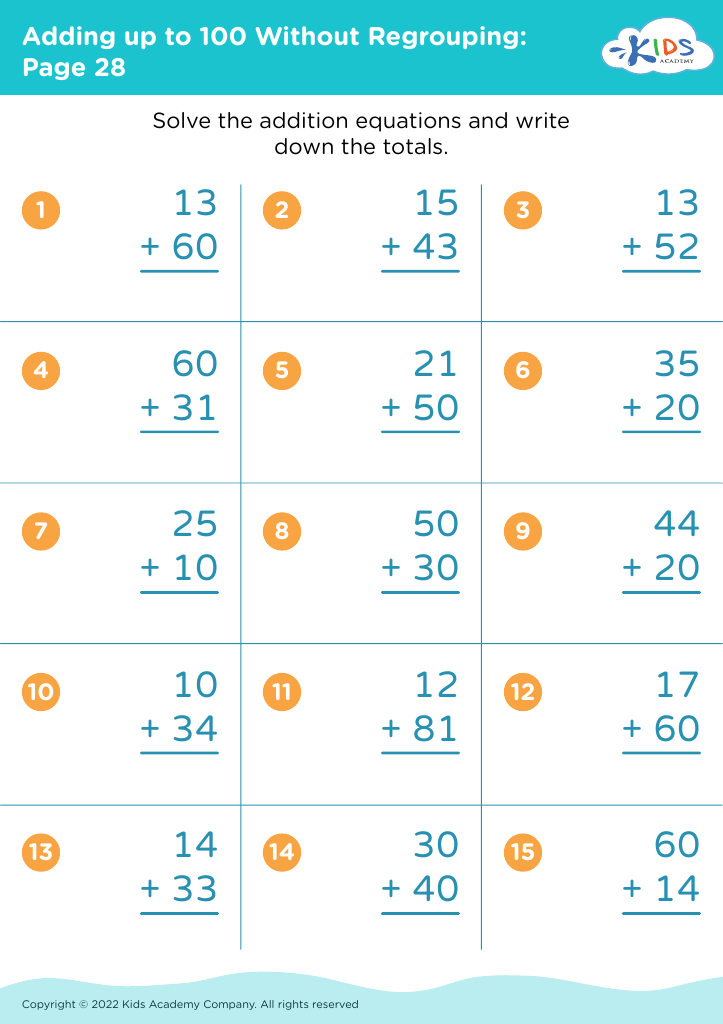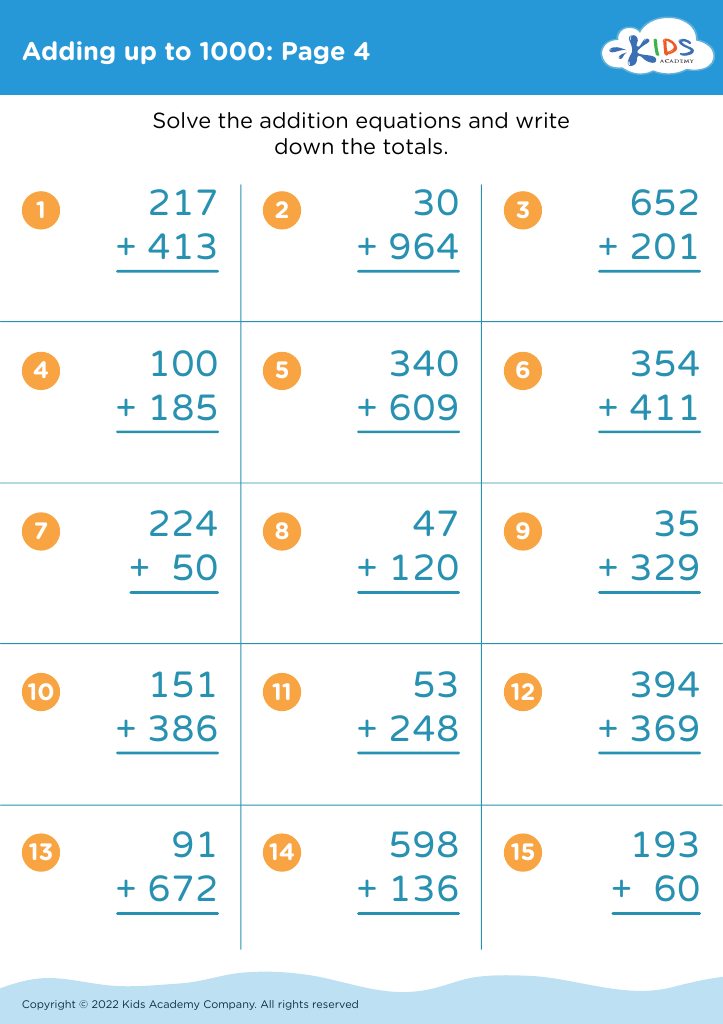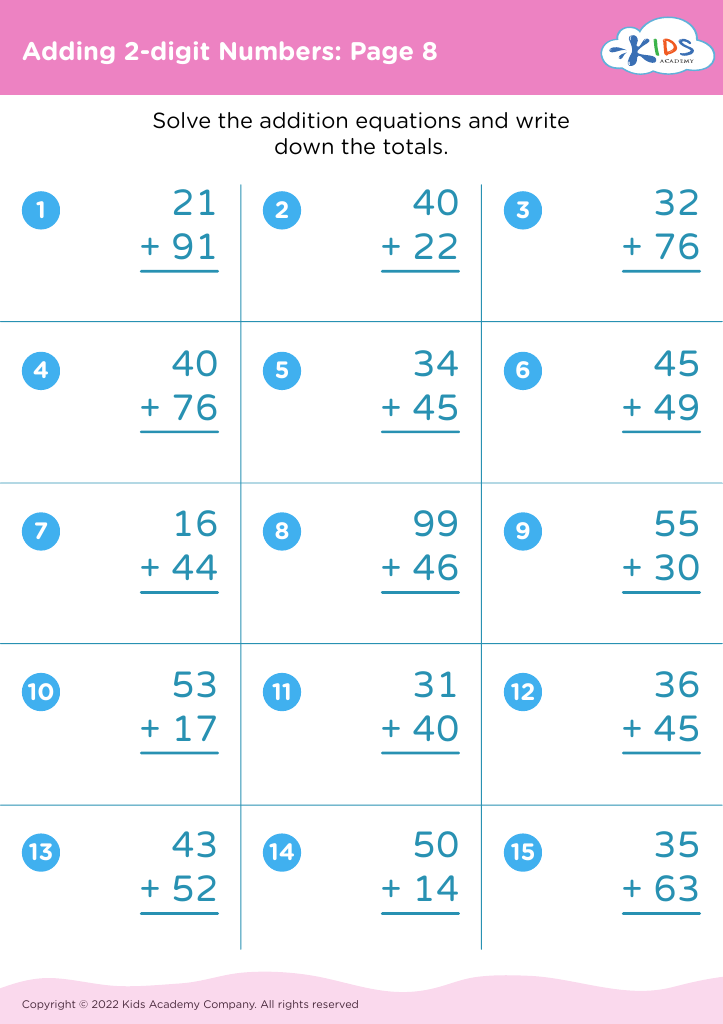Math problem-solving skills Addition Worksheets for Ages 4-9
3 filtered results
-
From - To
Our "Math Problem-Solving Skills Addition Worksheets for Ages 4-9" are designed to make learning addition both fun and effective. These engaging activities help young learners master essential arithmetic through interactive problem-solving exercises. Each worksheet progressively builds skills, ensuring a solid foundation in addition. Kids will enjoy colorful illustrations, exciting challenges, and a variety of problems that cater to different learning styles and stages. Ideal for in-class use or at-home practice, these worksheets provide an excellent resource for parents and teachers looking to enhance math proficiency in children. Start your child's journey to math success with our expertly-crafted addition worksheets!
Parents and teachers should prioritize the development of math problem-solving skills, particularly addition, in children aged 4-9 as it lays the groundwork for future academic success and essential life skills. During these formative years, children’s brains are highly adaptable and capable of learning foundational math concepts, making it the prime time to introduce and enforce addition skills.
Firstly, addition is a fundamental math skill that forms the basis for more complex mathematical operations, such as subtraction, multiplication, and division. Mastery in addition equips children with the confidence and competence to tackle higher-level math concepts encountered later in their education.
Moreover, honing addition skills enhances critical thinking and problem-solving abilities. When children engage in addition problems, they learn to follow logical steps, identify patterns, and make reasoned decisions. These cognitive skills are transferable to various aspects of life beyond mathematics.
Furthermore, early success in math fosters a positive attitude toward the subject. Children who feel confident in addition are more likely to enjoy math, leading to continued effort and engagement in their studies. Positive experiences with math at an early age can diminish math anxiety, a common struggle that affects many students as they progress through their education.
In conclusion, ensuring that young children develop robust addition skills is crucial. It builds a foundation for advanced mathematical learning, enhances cognitive capabilities, and promotes a lifelong positive relationship with mathematics.



















